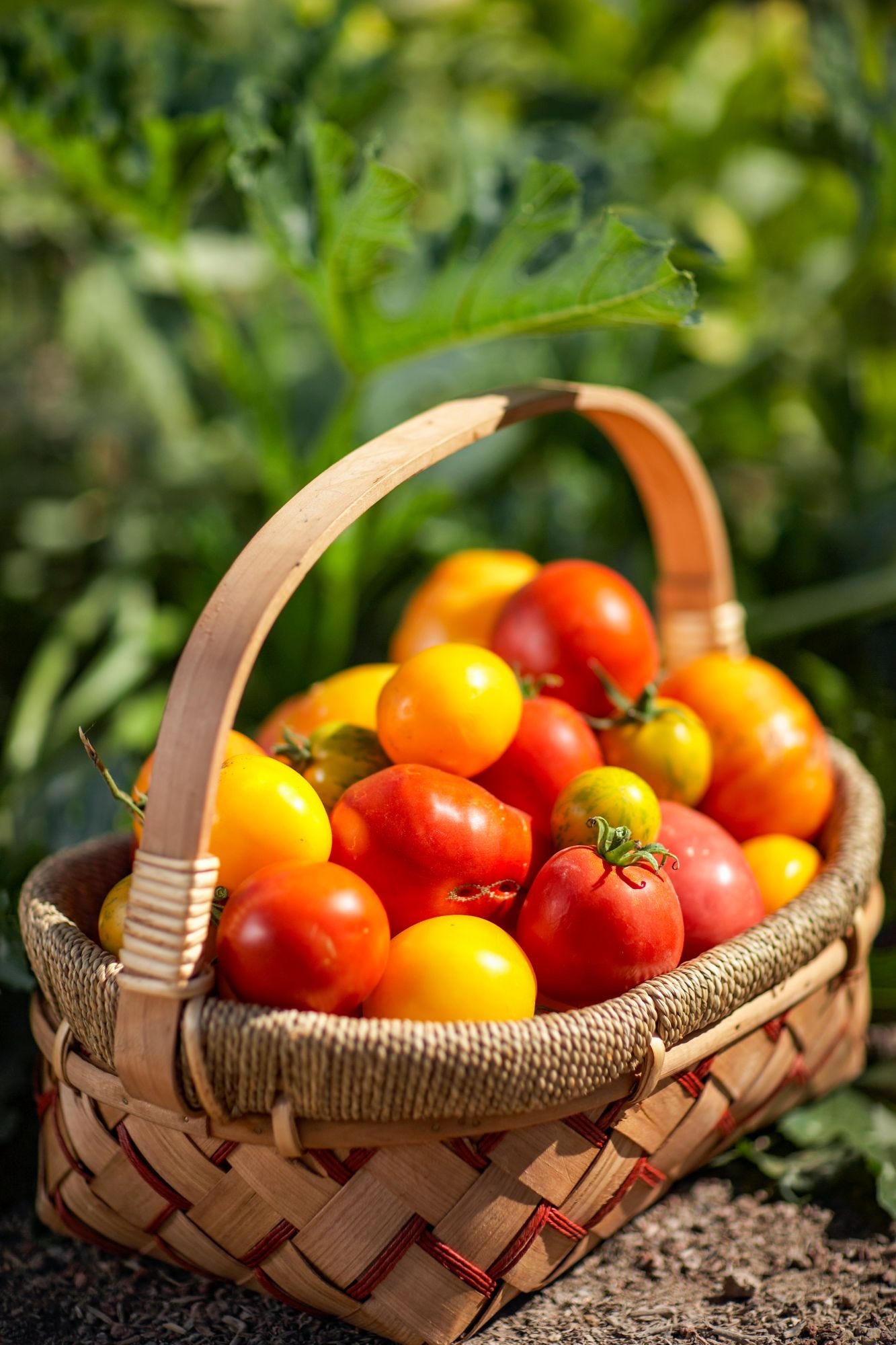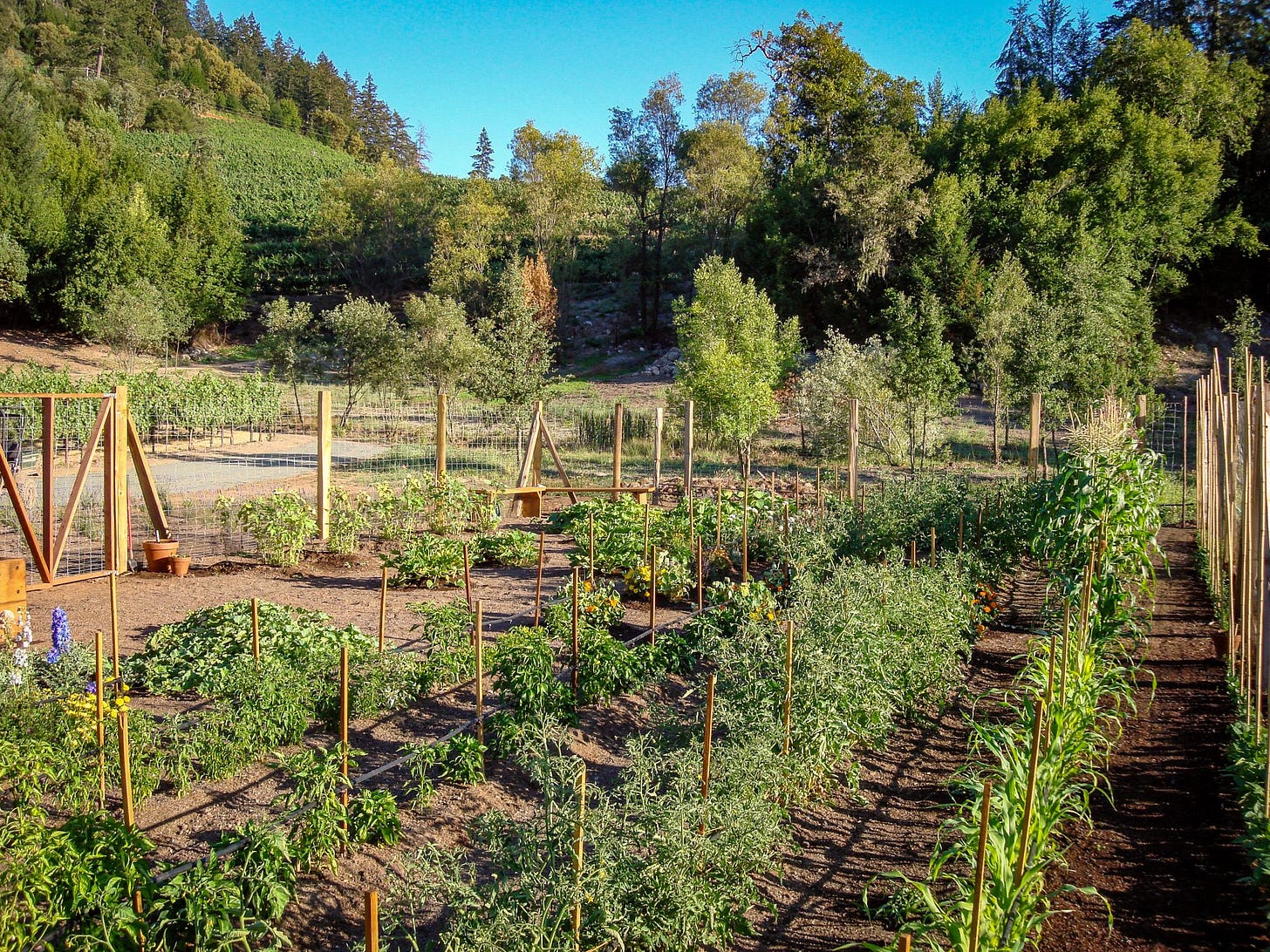NAPA VALLEY, Calif. — I often think of myself as the “reluctant gardener.” Sure, I have always appreciated a lovely garden space overflowing with lush greenery, aromatic blooms or perfectly ripe fruits and veggies. I just personally never had the desire or inclination to make that happen.
All that changed during COVID-19, when having young children meant finding ways to get outside and stay there. Sometimes it was for their physical and mental well-being; other times it was for my own sanity.
Fortunately, what started as a chore quickly became an incredibly rewarding experience for me. So much so that I ended up starting a garden education program at my children’s elementary school and completing the UC Master Gardener program. Now I regularly find myself not only talking about plants but often talking to them.

If you have been thinking about creating a flower or vegetable garden or have decided to start small by resolving to keep a houseplant alive for six months, let me fill you in on a few things that have helped me be (relatively) successful as a newbie.
I was fortunate to have a knowledgeable, albeit slightly demanding, person to help direct my first gardening foray. My mom, who spent several years living with my family, helped convert our ugly or nonexistent landscaping into an oasis of native plants.
Other than dutifully delivering compost, chicken manure and mulch as requested, I really had no idea what she did out there. When she started losing the mobility needed to maintain the space she had lovingly created, gardening became my way of connecting with her. She would sit on the porch identifying plants as I asked, “What’s this?” a thousand times.
Today sages and colorful perennials such as peonies and hydrangeas are bracketed by a handful of cabernet grapevines and dotted with “rescue roses,” many of them grown from cuttings or retrieved from the dead-or-dying section of the nursery.
Over the next years my gardening style could be summed up as survival of the fittest. If something got frost damage, I would cut it back, cross my fingers and see what happened. Forgot to water? Oh well, we’ll find out just how drought-tolerant those California natives really are.
Gradually I was able to find resources that helped me not feel like a complete nincompoop. The first of these was the Napa chapter of the California Native Plant Society. Members gave me information on different species, their growth habits, sun requirements and popularity. From there I collaborated with our elementary school to establish four new beds full of native plants for our community to enjoy.
This process showed me that the best way to get gardening information is simply to ask a gardener. I have never encountered a gardening enthusiast who doesn’t want to talk about it. A lot. So be prepared as you might get way more information than you needed or wanted.
Then I set my sights on the neglected school garden. Armed with weeding tools, undirected curiosity, the combined energy of more than 100 students and the UC Master Gardeners of Napa County’s “Month-by-Month Guide to Gardening in Napa County,” I set off with kindergarten through fifth-grade classes to plant our first vegetable garden in the fall of 2022.
Here is where I give you my most essential advice: Approach gardening like a kid. Treat it like a messy and exciting experiment. Yes, you might not have perfect rows of carrots and some of them might look a little funny, but they all taste the same.
Focus on the process and not the outcome. I guarantee you will do some things incorrectly at first, but that’s OK. Gardening is a wonderful opportunity to see that "failures" are just stepping stones to learning, and gardeners are always learning.
If you find yourself feeling overwhelmed and don’t have a gardening mentor available, here are some good ways to get started. First, determine what kind of plants you like. One of my favorite sites for this task is “Water-Wise Gardening in the Napa Valley.” Under the “Gardens tab,” click “Galleries” for inspiration. Photos allow you to hover over plants you like, learn their names and add them to a printable list of favorites.
Another excellent resource is the UC Davis Arboretum All-Stars brochure. The plants in this guide tend to have low water and maintenance requirements and to do well in most landscapes. Sometimes having a few successes when you start out can give you more confidence to branch out to more finicky species down the road.
If you need a little more support, register for workshops on the Napa County Master Gardener’s website. Topics include everything from lawn alternatives to composting to creating pollinator gardens. You can also contact the Master Gardener Help Desk to get answers to specific questions. Just send us pictures and a description of your current gardening conundrum, and we are happy to help.
Napa Library talk: Join UC Master Gardeners of Napa County on Thursday, July 6, from 7 p.m. to 8 p.m. for a Napa Library talk on “What’s Bugging You: Insects and Pests in the Garden” via Zoom. Register to get the link.
Food-growing forum: Join UC Master Gardeners of Napa County for a forum on “Beverages From Your Garden” on Sunday, July 9, from 3 p.m. to 5 p.m. at the University of California Cooperative Extension office, 1710 Soscol Ave., Napa. Register here.
St. Helena Library talk: Join UC Master Gardeners of Napa County for a talk on “Resilient Landscaping for Drought and Fire” on Tuesday, July 11, from 4:30 p.m. to 5:30 p.m. at St. Helena Library, 1492 Library Lane, St. Helena. Register here.
Guided tree walk: Join UC Master Gardeners for a free guided tree walk on Friday, July 14, from 10 a.m. to noon at Fuller Park, Oak and Jefferson streets, Napa. Space is limited to 15, and each person must register separately.
Gardening with the masters: Join UC Master Gardeners for an educational gardening experience on Saturday, July 15, from 10 a.m. to noon at OLE Health South Campus, 300 Hartle Court, Napa. Children ages 5 and older are welcome if accompanied by an adult. Class size is limited. Register here.
Help Desk: The Master Gardener Help Desk is available to answer your garden questions on Mondays and Fridays from 10 a.m. until 1 p.m. at the University of California Cooperative Extension Office, 1710 Soscol Ave., Suite 4, Napa. Or send your questions here. Include your name, address, phone number and a brief description of the problem. For best results, attach a photo of the plant. You may also leave a voicemail message with the same information at 707-253-4143.
Adrienne Boudreaux is a UC Master Gardener of Napa County.






Great article, I just ordered the UC Napa Co book, and I can’t wait to read it! Thanks for the references!
Excellent article!